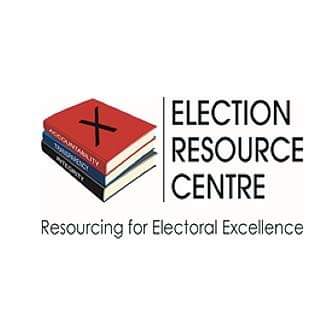By Takudzwa Changadeya
To foster a more dynamic and representative political landscape that harnesses the potential of the young people, election watchdog Election Resource Centre (ERC) has called on the Zimbabwean government to remove legal barriers that hinder active involvement of young people in political arenas.
In a recently launched study by ERC titled: The Nature of Youth Participation in Electoral and Political Processes in Zimbabwe, it is indicated that “young people in Zimbabwe constitutes 67.7 percent of the total population; their effective participation in electoral and governance processes remains a cornerstone to achieve sustainable inclusivity and enhanced civic engagement in politics.”
The study indicated that current legal frameworks are obstacles to young people’s involvement in politics and they limit their ability to contribute effectively to the country’s development, therefore the government should take proactive measures to lower the age limit for political offices.
The study also suggested that the government should reserve seats or quotas for young politicians, create platforms for youth engagement and unlock the tremendous potential of young people so as to foster a more representative political system.
“Presidential age limit must be lowered to allow youth who are 18 to 35 years old to participate, other countries put the presidential age at 30. For parliament and council, Zimbabwe must lower the age from 21 to 18 years, if one is allowed to vote as an adult at 18 years; she or he must be allowed to be voted for as noted in Section 67 (3) of the Zimbabwe Constitution.
“The quota system is specified in the Zimbabwe Youth Policy (2013) it is a process in which young people must have reserved spaces. As noted in ZHRC (2018) youth constitute 67% of the total population, therefore the statistic should mirror their participation in the national process.
“At parliamentary level young people must have a quota representation of the total seats, however, this needs to be backed by law that is the Zimbabwe Youth Act or any other Act of parliament. The political parties, government institutions and independent commissions such as Zimbabwe Electoral Commission (ZEC) must also be part of the processes to attain the youth quota system,” reads the study.
The study further reads that: “Government, parliament and political parties, given the growing youth population, should pursue institutional reforms to correct democratic deficits by lowering the eligibility age, designing new recruitment strategies, establishing youth quotas and empowering party youth wings.”
The study further indicated that political violence, which includes acts such as physical attacks, harassment, intimidation and so forth, has emerged as a significant barrier for young people actively engaging in the political arena, resulting in them undermining their trust in the political system.
“Previous elections from the year 2000 have shown that fear of violence, lack of information and intimidation are some of the major barriers to youth participation and in elections and governance processes in Zimbabwe.
“The peaceful environment encourages youths to participate without fear. The government, ZEC and National Peace and Reconciliation Commission (NPRC), Political Parties, Civil Society Organizations (CSOS) among other stakeholders must ensure that there is a conducive environment before, during and after elections, this will act as a motivator to youth in all their categories that is: youth with disabilities, young women, young men and pupils, all must take pride in participating in national programs,” reads the study.
The study revealed that the involvement of youth in politics remains crucial for the development and progress of the country as it empowers them to address their concerns, foster democracy, and secure a better future for future generations.
